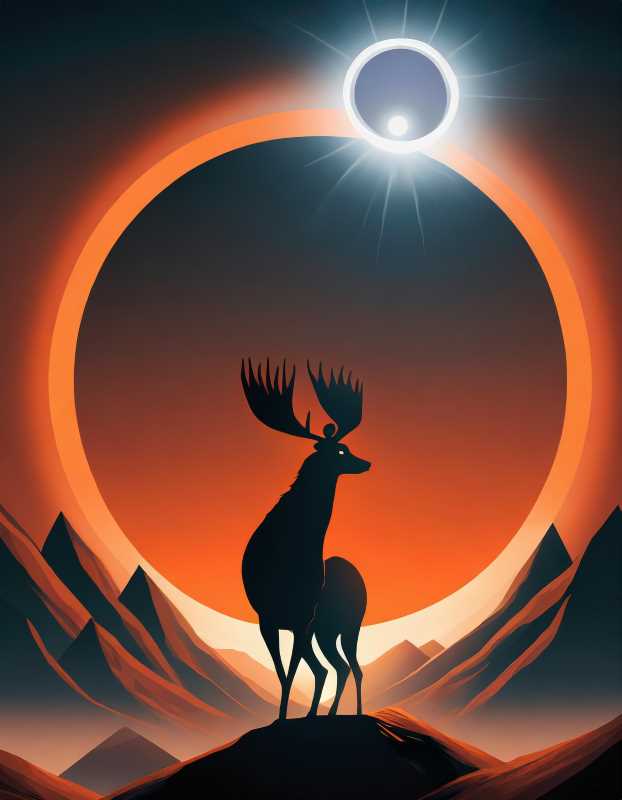What Chickens Taught Edison About Solar Eclipses
Solar eclipses disrupt animal behavior. Edison's observation in 1878 hints at uncharted territory. Ron Fernandez champions “citizen science” to decode these mysteries during upcoming eclipses.

On July 29, 1878, the brilliant inventor Thomas Alva Edison packed his bags and set off for a remote farm in Rawlins, Wyoming. His mission? To test a peculiar contraption, he had affectionately named the “tasimeter.” Edison's device had an audacious purpose: to measure the temperature of the sun's corona during a rare event known as a solar eclipse.
As the Moon slipped in front of the Sun, Edison's tasimeter sprang to life, but alas, it was a colossal failure, never to be patented. However, on that fateful day, Edison inadvertently contributed to science in a way he never imagined. As the world plunged into darkness, Edison observed a curious sight – the chickens on the farm stopped pecking, retreated to their coops, nestled on their perches, and drifted into slumber.
What Edison stumbled upon was the enigmatic world of animal behavior during solar eclipses. Little is known about how animals respond to these brief celestial events, which occur approximately once every 375 years in the same location, according to NASA. These natural spectacles, while fleeting, elicit a fascinating array of responses from our animal counterparts. From fireflies glowing at noon to dogs barking at invisible foes, the mysteries of eclipse-induced behaviors are ripe for investigation.
The root of these peculiar behaviors lies in the internal biological clocks that organisms have developed to synchronize with the daily cycle of day and night. Solar eclipses disrupt this cycle dramatically, causing some nocturnal creatures to awaken, diurnal animals to become lethargic, and those who rely on the sun for navigation to become disoriented.
Renowned neuroethologist Ron Fernandez emphasizes the need for in-depth research into this phenomenon. He points out that while anecdotal accounts of animal behavior during eclipses abound, scientific studies are scarce. Only a handful of notable studies, like the one on Metepeira incrassata spiders in the jungles of Veracruz, have provided intriguing insights.
So, why the lack of scientific material on the subject? Anthony Aveni, a prominent figure in archaeoastronomy, offers a possible explanation: “Being an astronomer, I cannot imagine the dedication and willpower involved in focusing your attention on an animal during a total eclipse, rather than on the Sun.”
Fernandez, inspired by a family anecdote about hens retreating to their coops during a solar eclipse, sees an opportunity for change. He champions the concept of citizen science, where ordinary people become integral in scientific research. He believes that people who observe noteworthy behaviors during eclipses could record them and share their findings with scientists, effectively providing eyes and ears in unexpected places.

In 2017, during a total eclipse crossing the United States, tens of thousands of citizens joined various scientific projects, yielding unprecedented information about the eclipse's impact on wildlife. Fernandez underscores the pivotal role of citizen science in expanding our understanding of eclipses.
As we approach the eclipses of 2023 and 2024, Fernandez encourages everyone to embrace the opportunity for citizen science. He and his team of biologists have created a platform, “Sounds in the Darkness,” where interested individuals can register as observers, sound collectors, data analysts, or even become advocates for this endeavor within their communities.
With the upcoming October 14 eclipse visible across the Americas, Fernandez's message is clear: “The sky has no borders, and clouds have no citizenship papers.” Together, through the power of citizen science, we can unravel the secrets of animal behavior during eclipses and usher in a new era of eclipse understanding.




